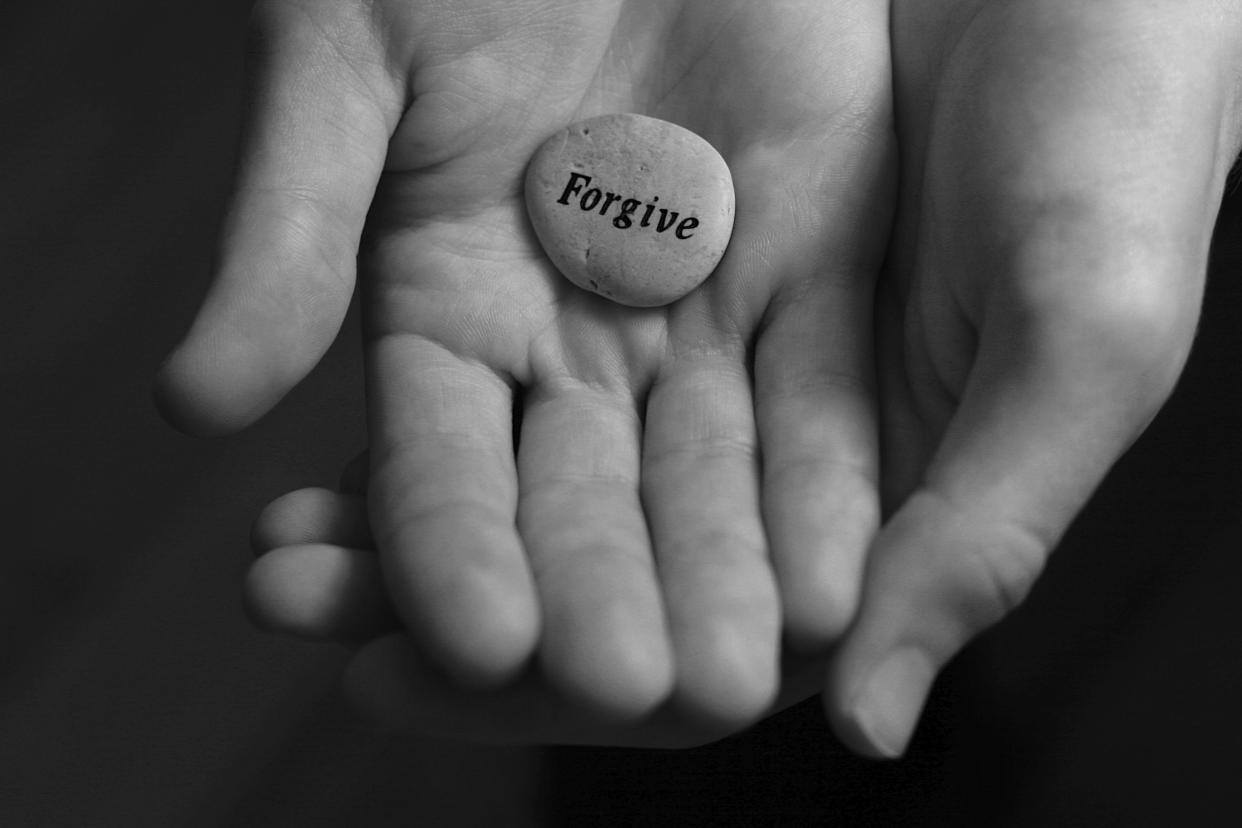Guest: We must choose forgiveness constantly, not violence or harm

- Oops!Something went wrong.Please try again later.
Editor's note: As part of our commitment to foster civil conversations in Viewpoints, we're inviting faith leaders to submit edited versions of their homilies that transcend religion, with messages that can appeal to people of all faith traditions.
It’s no one’s favorite Scripture. Even Hobby Lobby hasn’t figured out a way to make a buck off these verses. It turns out no one wants bedazzled home decor that reminds us we are supposed to forgive seventy-seven times, as the New Revised Standard Version translates it or “seventy times seven,” if you’re reading from the King James Version.
In the Gospel of Matthew, when Peter asks Jesus how many times we are supposed to forgive someone who has sinned against us, the answer is not what we want to hear. The difficulty of the task is what makes the number seem astronomical.
So why does Jesus ask this of us? As theologian Douglas Hare explains, “'Seventy-seven times’ is probably an allusion to Genesis 4:24, where Lamech proudly boasts to his wives that he will avenge himself seventy-sevenfold on anyone who dares to attack him. Forgiveness is thus presented as the antonym of revenge. Followers of Jesus must renounce the very human intention of getting even with someone who repeatedly injures them. They are called to be Lamech’s polar opposite.”
More: Walke: Joseph must have done a few things right for Jesus to end up being, well, Jesus
Thus, forgiveness is not dismissing or condoning hurtful behavior. It does not mean staying in an abusive relationship. Forgiveness is not the same as trust or resolution or justice. It is possible to forgive someone and enforce boundaries. It is not letting someone “get away with it.” As anti-apartheid leader Archbishop Desmond Tutu wrote, “Forgiveness is not weakness; it is not subversion of justice; it is not forgetting; it is not easy. Rather, forgiveness is freedom, it is wholeness and healing, it is releasing what we cannot survive by holding on … When we forgive, we take back control of our own fate and our feelings. We become our own liberators. We don’t forgive to help the other person. We don’t forgive for others. We forgive for ourselves.” Forgiveness is the antithesis of vengefulness.
Archbishop Tutu goes on, “Whether it is the tormentor who tortured me brutally, the spouse who betrayed me, the boss who passed me over for a promotion, or the driver who cut me off during my morning commute, I face the same choice: to forgive or to seek revenge. We face this choice of whether or not to forgive as individuals, as families, as communities, and as a deeply connected world. The quality of human life on our planet is nothing more than the sum total of our daily interactions with one another … Because we are human, some of our interactions will go wrong, and then we will hurt or be hurt, or both. It is the nature of being human, and it is unavoidable. Forgiveness is the way we set those interactions right. It is the way we mend tears in the social fabric. It is the way we stop our human community from unraveling.”
More: The Rev. Lori Walke: Our burning bush is the dumpster fire that is our state
If there is anything we know to be true, it is that violence begets violence. Harm begets harm. And this is why forgiveness is all there is, why we must work at it constantly, how we must choose it not just seven times, but seventy-seven times. Or seventy times seven.
We have miles to go, but as they say, “We make the road by walking.” May God grant us the courage to take the first step.

The Rev. Lori Allen Walke is senior minister at Mayflower Congregational United Church of Christ.
This article originally appeared on Oklahoman: Guest: Violence begets violence.That's why forgiveness is all there is

